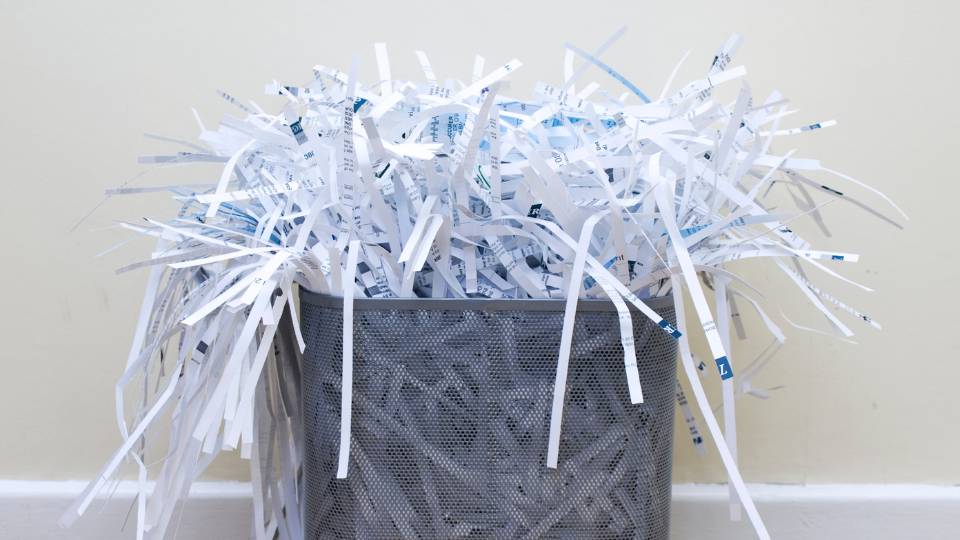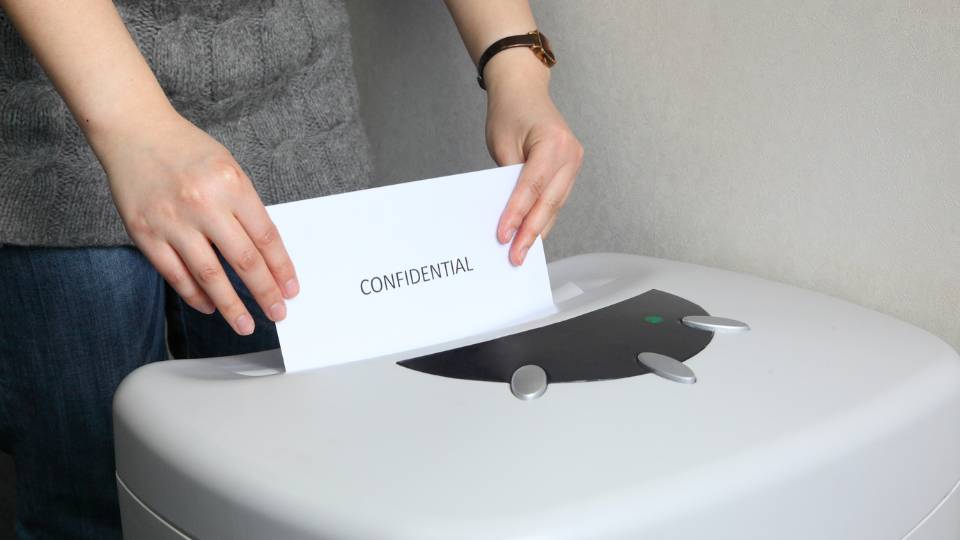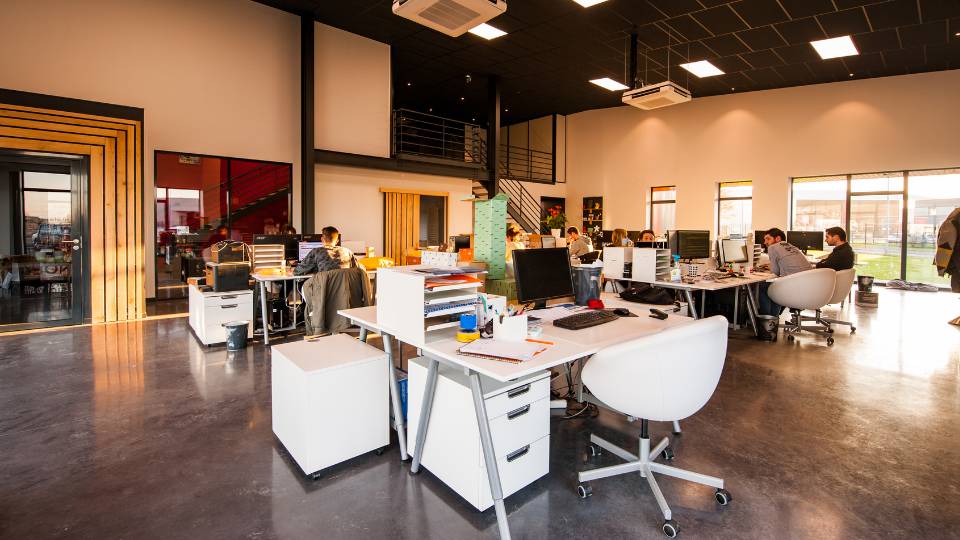
Is your office overflowing with paper and plastic? Drowning in waste can be a drag for the environment and your wallet. But fear not, recycling warriors!
This blog tackles ten frequently asked questions about office waste and recycling, empowering you to become a champion of sustainability.
Table of Contents:
- What Can Be Recycled in the Office?
- How to Go Paperless
- Boosting Recycling in Your Office
- It’s Not Just About Space
- Can I Save Money Through Recycling in My Office?
- Repurposing & Reusing Office Waste
- What Can’t Be Recycled?
- Conclusion
What Can Be Recycled in the Office?
Knowing what goes where is key to effective recycling.
Here’s a breakdown of common office recyclables to make sorting a breeze:
1. Paper Products
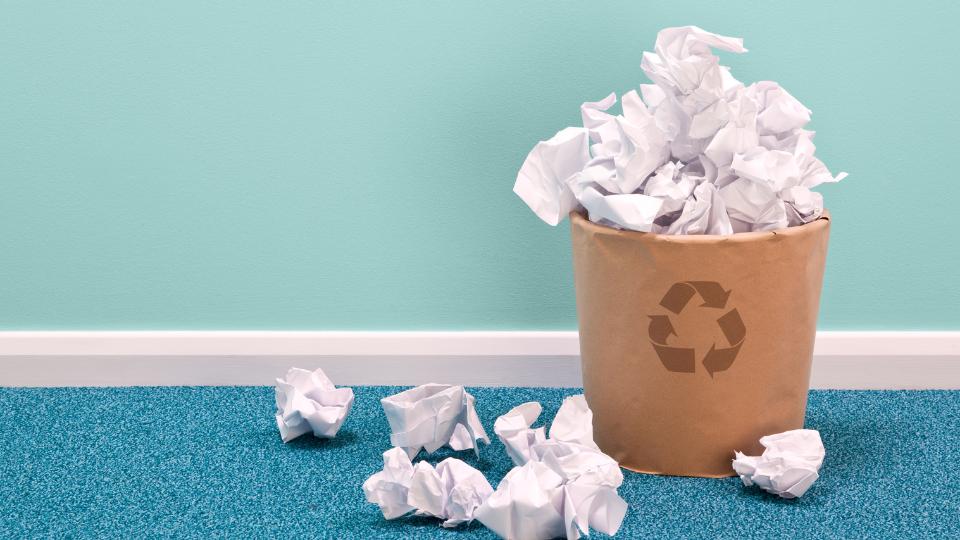
- Office paper (white, coloured, printer paper)
- Cardboard (flatten boxes to save space!)
- Magazines and newspapers
- Envelopes (including windowed ones)
- Paperboard packaging
2. Plastics: (Always check your local recycling guidelines for accepted plastics)
- Clean plastic bottles and jugs (typically marked with recycling symbols)
- Clean plastic cups (such as those used by a water cooler)
- Bubble wrap (bubble wrap is made from a thin, soft plastic that is called low-density polyethene (LDPE).
3. Metals:
- Aluminium cans (rinse for cleanliness)
- Aluminium foil (rinse for cleanliness)
4. Glass: (Check your local recycling guidelines for accepted glass colours and containers)
- Bottles and jars (remove lids and rinse)
5. Special Considerations
- Shredded paper: Some office shredding programs accept shredded paper for recycling, while others don’t due to the size and difficulty of processing. Be sure to check with your waste collection service for specific guidelines related to shredded office paper disposal.
- Electronics (e-waste): Due to hazardous materials, electronics require special handling.
Don’t toss them in the recycling bin! Look for designated e-waste drop-off locations in your area.
- Food scraps: Not everywhere offers food scrap composting, but it’s a great way to divert organic waste from landfills.
Check with your local waste collection service to see if this option is available.
Packaging materials: Consider the disposal of various office packaging materials, including bubble wrap, foam inserts, and office packaging peanuts, as recycling guidelines can vary by location.
How to Go Paperless
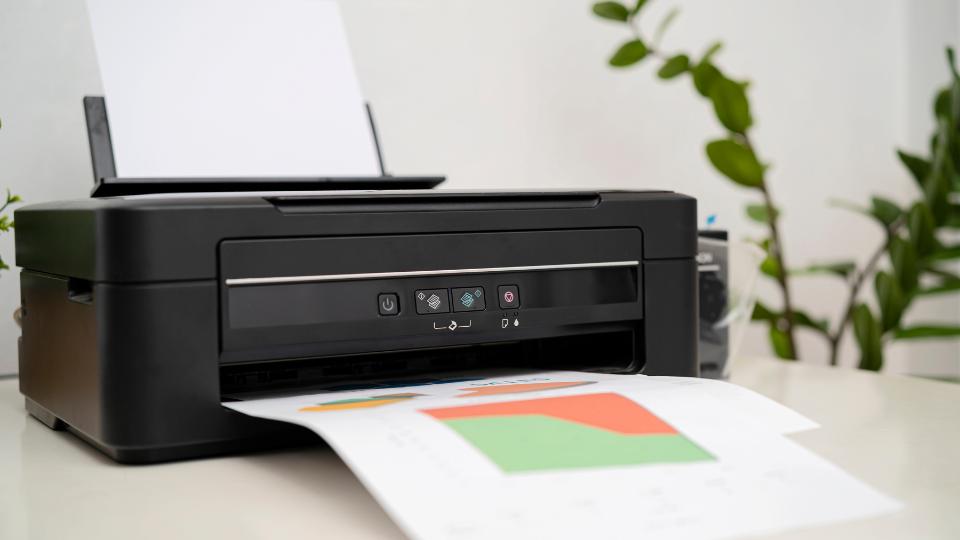
Transforming your office into a paperless zone is an eco-friendly and efficiency-boosting move.
Here’s a quick guide:
1 – Assess:
Identify areas where paper thrives – reports, contracts, meeting notes, etc. Understanding these paper trails helps target impactful changes.
2 – Embrace Digital:
Cloud storage like Google Drive eliminates physical copies and allows real-time collaboration.
Explore online forms for tasks and utilise electronic signature platforms to ditch printing, signing, and mailing.
3 – Optimise & Encourage:
Rethink meetings with digital note-taking apps and project documents instead of printing handouts.
Educate employees about the benefits of going paperless and encourage them to adopt digital alternatives.
Invest in scanners and shredders for the transition period.
4 – Make it Easy & Secure:
Reduce printers and place them centrally.
Set printers to double-sided printing by default.
When choosing cloud storage, prioritise data security with robust measures and clear document access policies.
Going paperless is a gradual journey. Focus on high-volume areas and integrate changes progressively.
By providing employees with the right tools and education, you can create a more sustainable and efficient paperless office.
Boosting Recycling in Your Office
The key to successful recycling is making it easy. Clearly labelled bins with visuals are a great start.
Educational campaigns promoting the advantages of recycling and proper sorting methods can significantly boost participation
Bin placement and labelling are also key.
Make sure that disposal units are placed appropriately in locations on your site making it simple for colleagues to dispose of materials efficiently.
Consider creating fun contests or offering small incentives to encourage friendly competition among colleagues.
It’s Not Just About Space
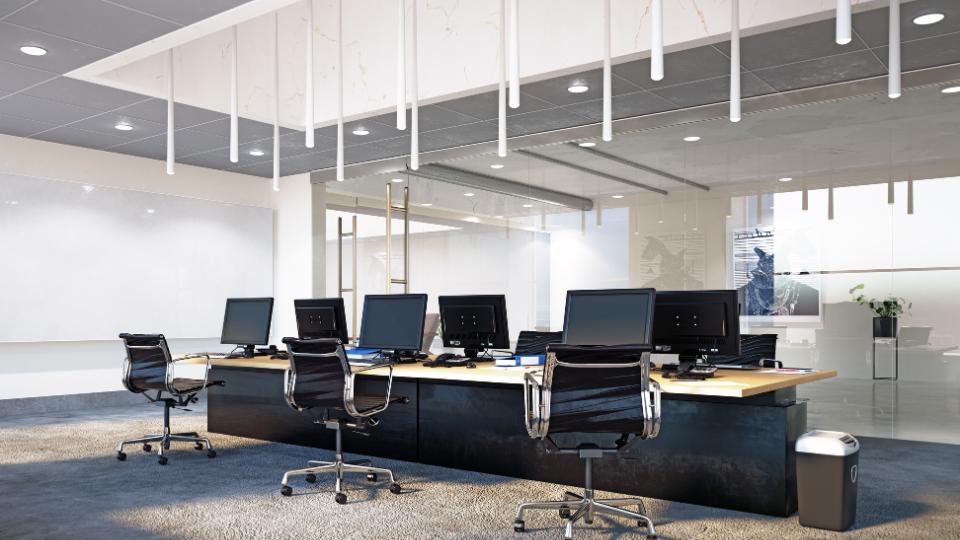
Limited space doesn’t have to limit recycling efforts.
Vertical bins take advantage of wall space, while some recycling providers offer countertop containers specifically designed for smaller offices.
Mixed-stream programs, where certain recyclables can be commingled in a single bin, are another option.
However, be sure to check with your local provider to ensure they accept mixed-stream recycling and understand any specific sorting requirements.
Here, contamination is a key concern – food residue or liquids in a recycling bin can render a whole batch unusable.
Can I Save Money Through Recycling in My Office?
Absolutely! Recycling reduces waste collection costs and allows companies to potentially switch to less expensive recycled-content products.
For example, many office supply stores offer recycled printer paper, toner cartridges, and notebooks at competitive prices.
By closing the loop and using recycled materials, businesses can contribute to a more sustainable supply chain and potentially save money in the process.
Repurposing & Reusing Office Waste
Before tossing that old stapler or overflowing box of paperclips, consider giving them a new lease on life!
In today’s eco-conscious world, repurposing and reusing items in the office isn’t just good for the environment, it can also save money and spark creativity.
Here are some ideas to get you started:
- Furniture Revival:
Is that old bookshelf looking a little worse for wear?
With a fresh coat of paint or some decorative touches, it can become a trendy accent piece.
Reupholster chairs or add casters to filing cabinets for a mobile storage solution.
- Office Supply Extravaganza:
Don’t underestimate the power of a little imagination!
Turn empty coffee cans into pen holders or paint them for a pop of colour.
Repurpose cardboard boxes into desk organisers or printer stands.
Those leftover paint swatches from a renovation project can be transformed into handy bookmarks.
- Tech Takeover:
Does your office have a graveyard of outdated electronics?
See if old laptops can be used for spare parts or repurposed for simple tasks.
Donated tablets can be a great way to display presentations or digital signage.
- Paper Paradise:
Even scrap paper has potential!
Use one-sided printed paper for note-taking or drafts.
Shredded paper can be a great packing material or even transformed into colourful gift wrap tissue.
By thinking creatively and promoting a “reuse” culture, your office can become a champion for sustainability.
So next time you’re tempted to toss something, take a pause and consider its hidden potential!
What Can’t Be Recycled?
- Food waste (unless composted) is a major culprit. Contaminated items with food residue or liquids are another no-go, as they can contaminate a whole batch of recyclables.
- Certain plastics, usually those with recycling codes 3-7 on the bottom of the container, are often not accepted in curbside recycling programs.
- To avoid contaminating your recycling stream, here’s a quick rundown of what shouldn’t end up in your office’s recycling bin:
- Contamination is a major culprit in ruining perfectly good recyclables. Avoid tossing food-stained paper products or soggy cardboard. Food residue and moisture can render a whole batch unusable.
- Sticky notes, labels, and heavily taped paper can be tricky to separate during recycling. Opt for reusable alternatives or ensure minimal tape usage.
- Similarly, products like paper cups, food wrappers, and glossy magazines often have a waxy or plastic coating that can’t be effectively separated from the paper. The same goes for laminated paper – the inseparable plastic film makes it unsuitable for standard recycling.
By familiarising yourself with these no-nos, you can become a recycling champion in your office. Remember, a little awareness goes a long way in keeping your recycling stream clean and efficient!
Conclusion
So there you have it! By steering clear of these recycling faux pas, your office will be able to maximise its recycling output in no time.
Remember, keeping things clean and sorted is key – a bit of effort goes a long way in stopping perfectly good recycling from getting binned.
Become a shining example for your partners & clients. Together we can create a greener future, one paperclip at a time (or skip the paperclip and reuse the old one!).

